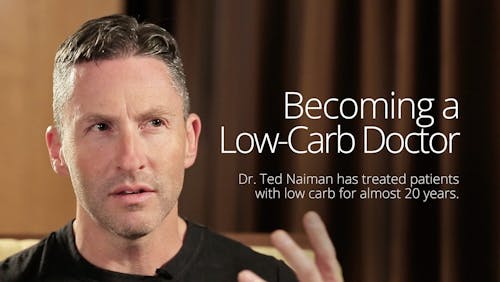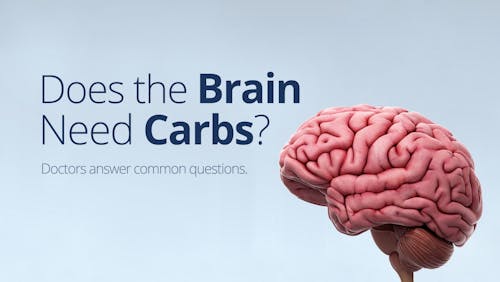A ketogenic diet may help with Alzheimer’s disease

A new systematic review of trials published in Advances in Nutrition shows the potential benefits of a ketogenic diet for treating Alzheimer’s disease.
Alzheimer’s disease is devastating, and the prevalence is increasing rapidly. Unfortunately, billions of dollars in drug research have yet to find an effective treatment to prevent or treat it. But maybe the answer isn’t drugs, but instead, it’s something as simple as the food we eat.
A review of 10 randomized controlled trials shows ketosis may be a potential answer. The included studies ranged from 45 to 180 days and used different means of establishing ketosis (keto formulas or meals, MCT powder or drinks, or ketone drinks).
The review concluded that nutritional ketosis improved general cognition and memory without significant executive ability and attention benefits. The studies also showed improved brain uptake of ketone bodies, and the researchers concluded the benefits were similar in the short and long-term studies.
Interestingly, those who had an ApoE4 gene had lower ketone levels and had less beneficial effects from the interventions.1 The ApoE4 participants still improved some with a ketogenic intervention, but less quickly and less dramatically than those with ApoE2 or ApoE3 genes.
Although ketogenic diets may not have improved all aspects of cognitive function, in the disappointing landscape of Alzheimer’s disease therapies, they do hold some promise. As this nutritional intervention gains support as a potentially effective treatment, we can expect to see more extensive and detailed studies.
In the meantime, since a ketogenic diet is safe and well-tolerated by most people, it is reasonable that clinicians make it a go-to therapy for those showing signs of cognitive decline.
You can hear more about ketosis’s role in Alzheimer’s disease in our podcast interviews with the low-carb nutritionist and author Amy Berger and psychiatrist Georgia Ede.
Thanks for reading,
Bret Scher MD FACC
More posts
New study claims red meat leads to heart disease
Do low-carb eaters burn more calories?
Men lose more weight on a low-carb diet than women — but why?
Low-carb basics
The ApoE gene comes in 3 different variations: ApoE2, ApoE3 and ApoE4. The ApoE4 variant is a major predictor for the risk of developing Alzheimer’s disease and has been nicknamed the “Alzheimer’s gene.” ↩























